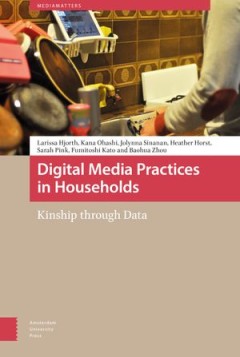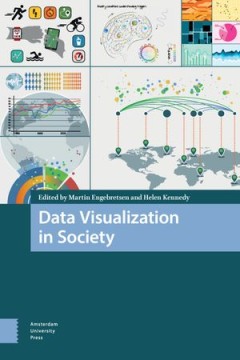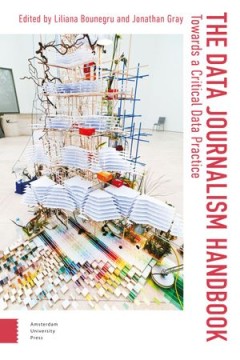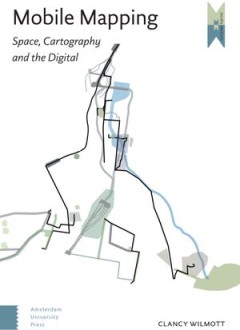Filter by

Electronic Participation 7th IFIP 8.5 International Conference, ePart 2015, …
This book constitutes the refereed proceedings of the 7th IFIP WG 8.5 International Conference on Electronic Participation, ePart 2015, held in Thessaloniki, Greece, in August/September 2015. The 12 revised full papers presented were carefully reviewed and selected from 19 submissions. The papers have been organized in the following topical sections: eParticipation and social media, delibratio…
- Edition
- 1
- ISBN/ISSN
- 978-3-319-22500-5
- Collation
- 33 b/w illustrations
- Series Title
- -
- Call Number
- -

Electronic Government and the Information Systems Perspective 4th Internatio…
This book constitutes the refereed proceedings of the 4th International Conference on Electronic Government and the Information Systems Perspective, EGOVIS 2015, held in Valencia, Spain, in September 2015, in conjunction with DEXA 2015. The 26 revised full papers presented together with one invited talk were carefully reviewed and selected from 30 submissions. The papers are organized in the f…
- Edition
- 1
- ISBN/ISSN
- 978-3-319-22389-6
- Collation
- 98 b/w illustrations
- Series Title
- -
- Call Number
- -

Electronic Government 14th IFIP WG 8.5 International Conference, EGOV 2015, …
This book constitutes the refereed proceedings of the 14th IFIP WG 8.5 International Conference on Electronic Government, EGOV 2015, held in Thessaloniki, Greece, in August/September 2015 in conjunction with the 7th International Conference on eParticipation, ePart 2015. The 25 revised full papers presented were carefully reviewed and selected from 53 submissions. The papers have been organized…
- Edition
- 1
- ISBN/ISSN
- 978-3-319-22479-4
- Collation
- 37 b/w illustrations
- Series Title
- -
- Call Number
- -

Mobile Web and Intelligent Information Systems
This book constitutes the refereed proceedings of the 12th International Conference on Mobile Web and Intelligent Information Systems, MobiWIS 2015, held in Rome, Italy, in August 2015. The 17 full papers and 3 short papers presented were carefully reviewed and selected from 55 submissions. The papers are organized in topical sections such as mobile services and applications; usability and visu…
- Edition
- 1
- ISBN/ISSN
- 978-3-319-23143-3
- Collation
- XVI, 229
- Series Title
- Lecture Notes in Computer Science
- Call Number
- -

Digital Media Practices in Households Kinship through Data
How are intergenerational relationships playing out in the digital rhythms of the household? Through extensive fieldwork in Tokyo, Shanghai and Melbourne, this book ethnographically explores how households are being understood, articulated and defined by digital media practices. It explores the rise of self-tracking, quantified self and informal practices of care at distance as part of contempo…
- Edition
- -
- ISBN/ISSN
- 9789048542062
- Collation
- -
- Series Title
- -
- Call Number
- -

Data Visualization in Society
Today we are witnessing an increased use of data visualization in society. Across domains such as work, education and the news, various forms of graphs, charts and maps are used to explain, convince and tell stories. In an era in which more and more data are produced and circulated digitally, and digital tools make visualization production increasingly accessible, it is important to study the c…
- Edition
- -
- ISBN/ISSN
- 9789048543137
- Collation
- -
- Series Title
- -
- Call Number
- -

The Data Journalism Handbook Towards A Critical Data Practice
The Data Journalism Handbook: Towards a Critical Data Practice provides a rich and panoramic introduction to data journalism, combining both critical reflection and practical insight. It offers a diverse collection of perspectives on how data journalism is done around the world and the broader consequences of datafication in the news, serving as both a textbook and a sourcebook for this emergin…
- Edition
- -
- ISBN/ISSN
- 9789048542079
- Collation
- -
- Series Title
- -
- Call Number
- -

Media, Knowledge & Education Exploring New Spaces, Relations and Dynamics in…
In recent years, new and established media have penetrated, challenged, and often surpassed in significance traditional institutions of socialization and education. Moreover, the social organization of knowledge production and distribution has become highly mediated through increasingly complex combinations of information and communication technologies. The papers in this volume are exploring i…
- Edition
- -
- ISBN/ISSN
- 9783902571670
- Collation
- -
- Series Title
- -
- Call Number
- -

Mobile Mapping: Space, Cartography and the Digital
This book argues for a theory of mobile mapping, a situated and spatial approach towards researching how everyday digital mobile media practices are bound up in global systems of knowledge and power. Drawing from literature in media studies and geography - and the work of Michel Foucault and Doreen Massey - it examines how geographical and historical material, social, and cultural conditions ar…
- Edition
- -
- ISBN/ISSN
- 9789048535217
- Collation
- -
- Series Title
- -
- Call Number
- 302.23 WIL m

Media, Knowledge & Education Exploring New Spaces, Relations and Dynamics in…
In recent years, new and established media have penetrated, challenged, and often surpassed in significance traditional institutions of socialization and education. Moreover, the social organization of knowledge production and distribution has become highly mediated through increasingly complex combinations of information and communication technologies. The papers in this volume are exploring i…
- Edition
- -
- ISBN/ISSN
- 9783902571670
- Collation
- -
- Series Title
- -
- Call Number
- -
 Computer Science, Information & General Works
Computer Science, Information & General Works  Philosophy & Psychology
Philosophy & Psychology  Religion
Religion  Social Sciences
Social Sciences  Language
Language  Pure Science
Pure Science  Applied Sciences
Applied Sciences  Art & Recreation
Art & Recreation  Literature
Literature  History & Geography
History & Geography